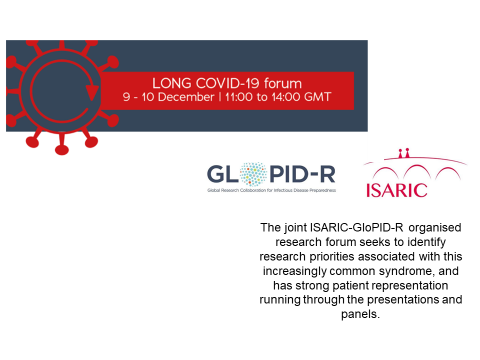
Currently very little is known about the clinical, biological, psychological and socio-environmental impact of Coronavirus Disease 2019 (COVID-19). While most people have uncomplicated recoveries, some continue to live with prolonged illness and symptoms. The most common of these are fatigue, breathing difficulties, joint pain and chest pain. In those whose symptoms persist, COVID-19 has been associated with a worsened quality of life for almost half of them. These on-going difficulties affect not only patients who were hospitalised but also those with mild COVID-19 who were not hospitalised.
Today, prolonged COVID-19 is affecting people in several countries with implications at an individual as well as socioeconomic level. Determining the longer-term potential consequences of COVID-19, through coordinated research, is important for patient management, to prevent and limit complications and to improve recovery times. It will also help identify the support needed to help people recover and the specific factors that may influence the risk of longer-term complications and improve recovery time.
Furthermore, there is increasing evidence that acute COVID-19 infection may affect the brain, and lead to confusion or changed psychological status. The longer-term psychosocial consequences of this disease, such as low mood, depression and anxiety can have severe implications for quality of life and the ability to return to work. Those having undergone intensive care support due to the illness may also experience post-traumatic stress disorder.
There is, therefore, an urgent need for robust scientific studies into the long-term impact of COVID-19. An understanding of the breadth of the physical, psychological and social complications must be developed and any specific risk factors for developing Long COVID, and also the populations at risk, must be identified. Hospital management teams must be informed to support prevention, rehabilitation and interventions to improve recovery and patient outcomes.
With this need in mind, ISARIC and GloPID-R are organizing the Long COVID Joint Research Forum on December 9 & 10, 2020. The objectives of the forum will be:
- to gain a better understanding of Long COVID; the science and the personal impact
- to define research gaps for funders and researchers to take forward
To read more and register click here.

